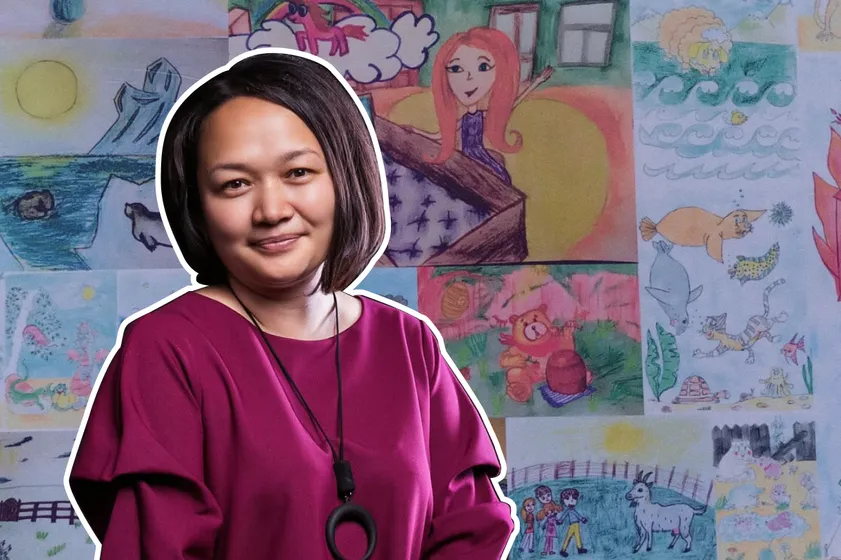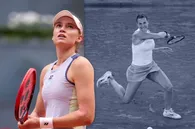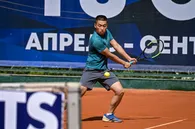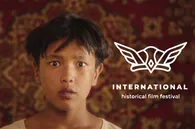It’s impossible to find a person born and raised in Kazakhstan who is not familiar with My name is Kozha by Berdibek Sokpakbayev, or such a satirical folklore character as Aldar Kose. Many of us should remember several of the plethora of Kazakh fables we heard when we were kids. The works of Kazakh children’s authors eventualy found their way onto TV screens, YouTube series and even comic books. While new forms of video and interactive content for children are thriving, full of flashy characters and fast-paced montages fighting for the kids’ attention, the children’s book authors in Kazakhstan still win acclaim of their young audience.
Dina Oraz (Dinara Orazbekova), a children’s author based in Astana, can shape minimalist and playful reflection of the world in poems and stories relatable to today’s children. Some of the author’s works have been translated into English, Kazakh, Kyrgyz, Turkish, Azerbaijani, Belarusian, Ukrainian and Latvian languages. Her short stories cover important concepts for the young audience to learn about, such as friendship, compassion, and empathy.
QazMonitor sat down with the author to talk about her creative journey, what stories captivate today’s children, why it is important to address their interests and speak their language.

How exactly did your journey as a children's author begin?
My youngest daughter motivated me. When she was born — my third child — she was fidgety, very curious, very active and I liked playing, singing songs with her and all that. [...] And then one day, when we were going for a walk together, I came up with the first poems about her. I wrote them down, posted them on the Internet to see how it would turn out. And as people were reading them, they started leaving some feedback, they liked it, liked what I wrote about the child… As I shared more poems some people commented: “Your poems are good, why don’t you publish a children’s book?” And I thought “A book? How can I write a book?” I hadn’t been actually planning to publish a book, but I decided to give it a try.
Some of your works have animals with human features as characters. Is it still easy to interest children in such stories as it was, say, 20 years ago?
You know, if you take any child, they really love animals. I haven't seen many children who don't… there are just no such kids! When we were kids, we all wanted to have a kitten or a dog. We were taught not to hurt cats, dogs, birds; we were taught to be compassionate towards them. And that’s probably why my characters were animals. For the most part, you see that it’s easier to communicate ideas to children this way. Because even as a child, I read plenty of fairy tales and for the most part their characters were talking animals.
When you look at these fairy tales, you understand that, basically, it is not animals that are depicted here, but people. Because every animal has some traits, and you start noticing — the fox is cunning, and the hare is kind, the bear is strong, and the wolf is fearless. And any verse, poem, or fairy tale conveys exactly the human nature.
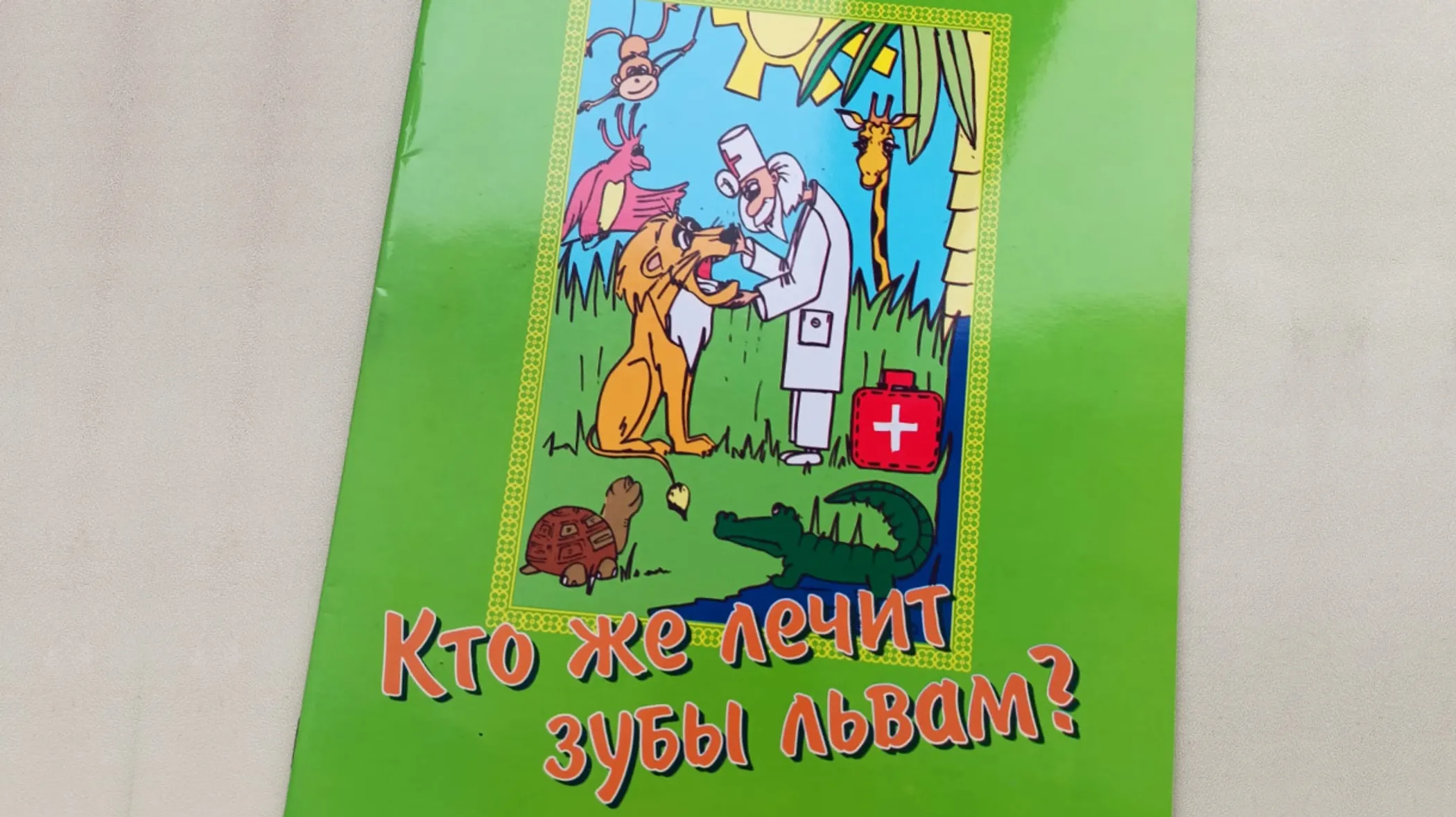
It is easier for children to [perceive a story] with animals than people. And we have always believed, or rather our ancestors — not only the Kazakhs — that deities come to us in the form of animals, merging with [the nature] .
Are there any topics that children's literature authors should avoid? Any limitations?
No, I think that children need to be told everything as is. You need to talk to children the same way you talk to adults. If you lie about something, exaggerate, turn a blind eye to something, soon you will see children behave the same way. They will lie, and also show disregard for certain things. You need to be honest with children.
On the contrary, we learn from children. Personally, I listen to children, I hear them, and I learn a lot from them. And I'm starting to look at many things differently. There are things that adults don’t even think about that children say in their innocent expressions and phrases. They provide such clever thoughts that you have never even thought about and could not think about. And it’s as if they speak with the words of an angel or like a god.
You have a number of poems and stories in your catalog, available online and in print. Have any of them been translated into English?
Yes, a fairy tale called Four Elemental Spirits, it has been translated into English. It tells a legend about the Fire, Wind, Water, Earth and about the man. What is more powerful in this world? Fire, Wind, Water or Earth? I wanted kids to see this and understand why these four elements should be appreciated. What is the importance and essence of these four elements for a person? Can these four elements exist separately from each other? Or are they all connected? And I raised these questions in this legend.
As you read it, it turns out that it is important for them to live in peace and friendship. And the man helped them resolve this dispute about who was the most important of all. He showed them that they could not exist without each other. And this fairy tale explains that this is what friendship is. You can’t boast telling everyone “I’m so strong, I’m so smart, so educated but you’re beneath me”. You can’t belittle a person.
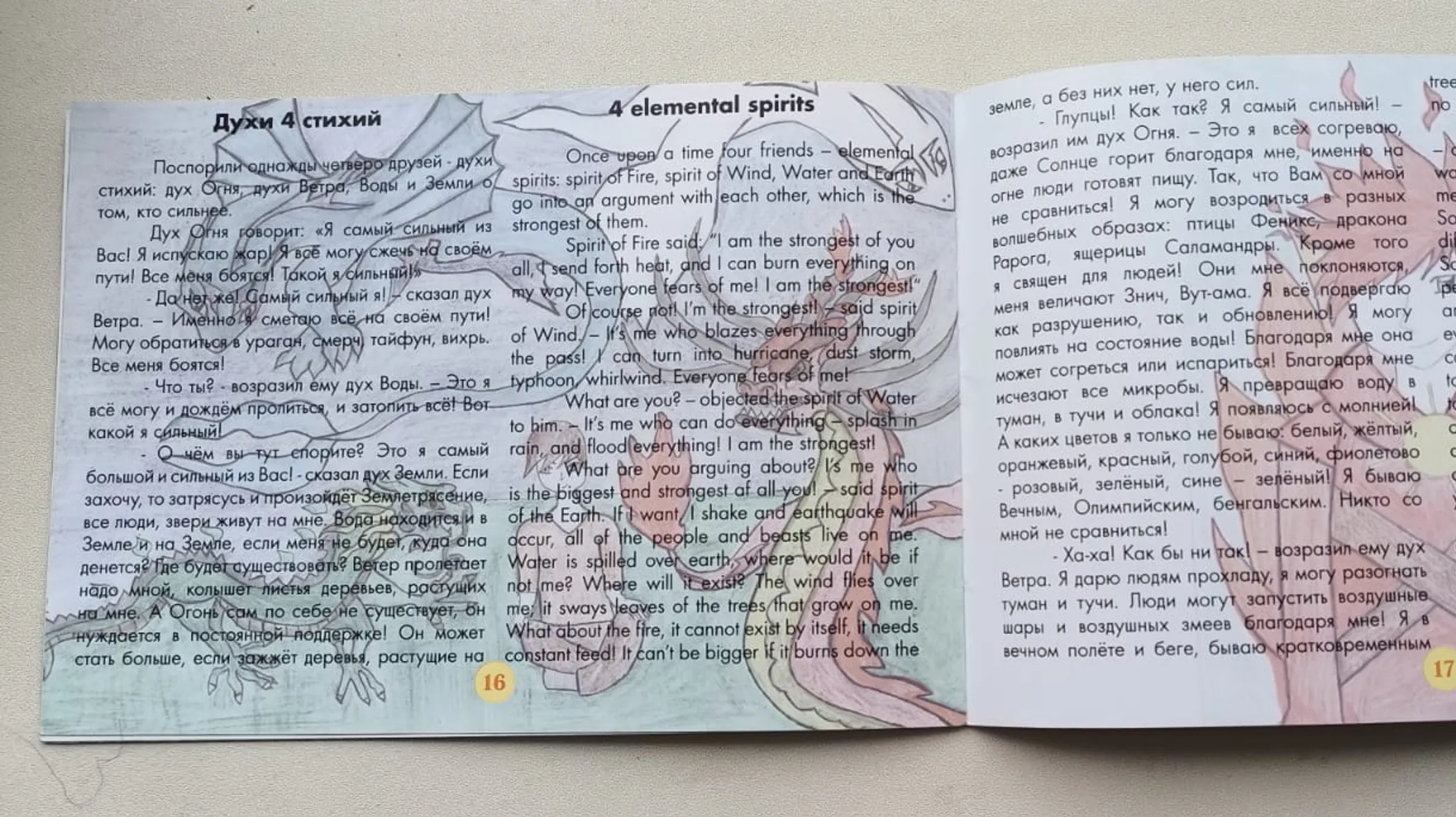
I tried to show children that they need to be equal. Of course, you need to demonstrate your strengths, develop your skills, but you cannot belittle others. We need to try to help each other. With the help of other people, you grow. It is impossible for a person to grow with no one around him. It doesn't work that way. How do we grow? We grow in a society.
I also have a fairy tale called Aina Through the Looking Glass, which has been translated into English as well as a few other poems. But only this legend, Four Elemental Spirits, is printed in English.
Since today we have entered the digital age and the physical media of books, newspapers and magazines seem impractical, how critical is what format is used to convey works and stories to children?
Many people download books and read them, but these are mostly adults. I haven’t noticed this with children, I haven’t asked them about it. Although I have had many events at schools, for some reason I didn’t think to ask them such a question. Because, probably, I prefer paperback books, not digital ones. For me personally, it was very difficult to read a book in a digital version. It did stay in my memory, but imagination didn’t work to the same extent compared to reading an ordinary [printed] book. Something stayed in my memory, but I still didn’t feel enough delight. It wasn’t enough, you don’t get a complete picture.
What are the features of modern Kazakh literature for children?
I would classify it by generation. Authors of the previous generations focused on the traditions of the Kazakhs. They focused on the era they lived in. Those authors were trying to convey that time through children’s literature. But the truth is that children today are different. They have a different way of thinking and outlook. They may not always understand what the authors from the past wrote.
Modern, younger authors are trying to focus on today’s children. They write in such a way that children understand. They try to use new words, consider children’s interests these days, take trends into account. And that's probably the right way.
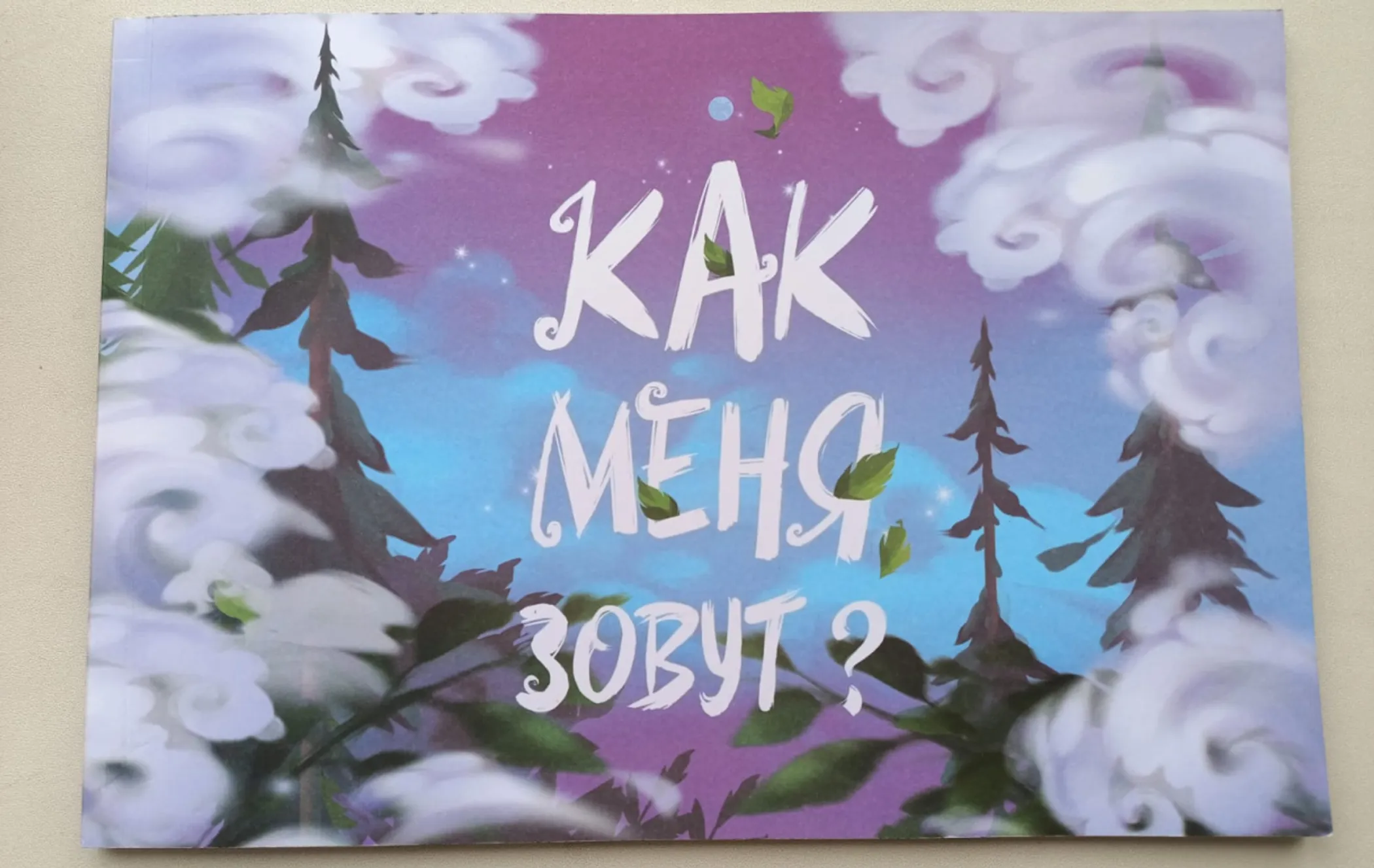
We need to pay attention to how the language, slang, and trends change. If we don’t do this, then who will we write for? Children simply will not understand us. We will be like two different generations, like “Fathers and Sons”, who do not understand each other.
So it is important, so to speak, to adapt to the new generation, rather than try to impose your trends on them?
Yes, there is no need to enforce anything. People don't like being lectured to. Children don't like it either. After all, everyone wants to be free and independent. And on the contrary, when you respect the opinion of another person, listen to them, support them, then this child will open up to you. They will be happy to tell you something, will be happy to listen, and engage in conversation with you. This is how it works. We shouldn’t tell them things like “Since I wrote this, this is the right way, you have to read it, this is how it should be.”
Will children's literature change and transform in the future? Will we see completely new trends emerge, for example with new objects, entities, worlds that were not common before?
Of course it will. Where does a person’s imagination come from? It comes from what we read, from what we see in our dreams, and from our desires. Certainly there will be something new because we always move forward. We developed a computer, next it was a smartphone, then something new will emerge. People are already putting these VR glasses on their eyes. Something new will come up that we don’t know yet.
